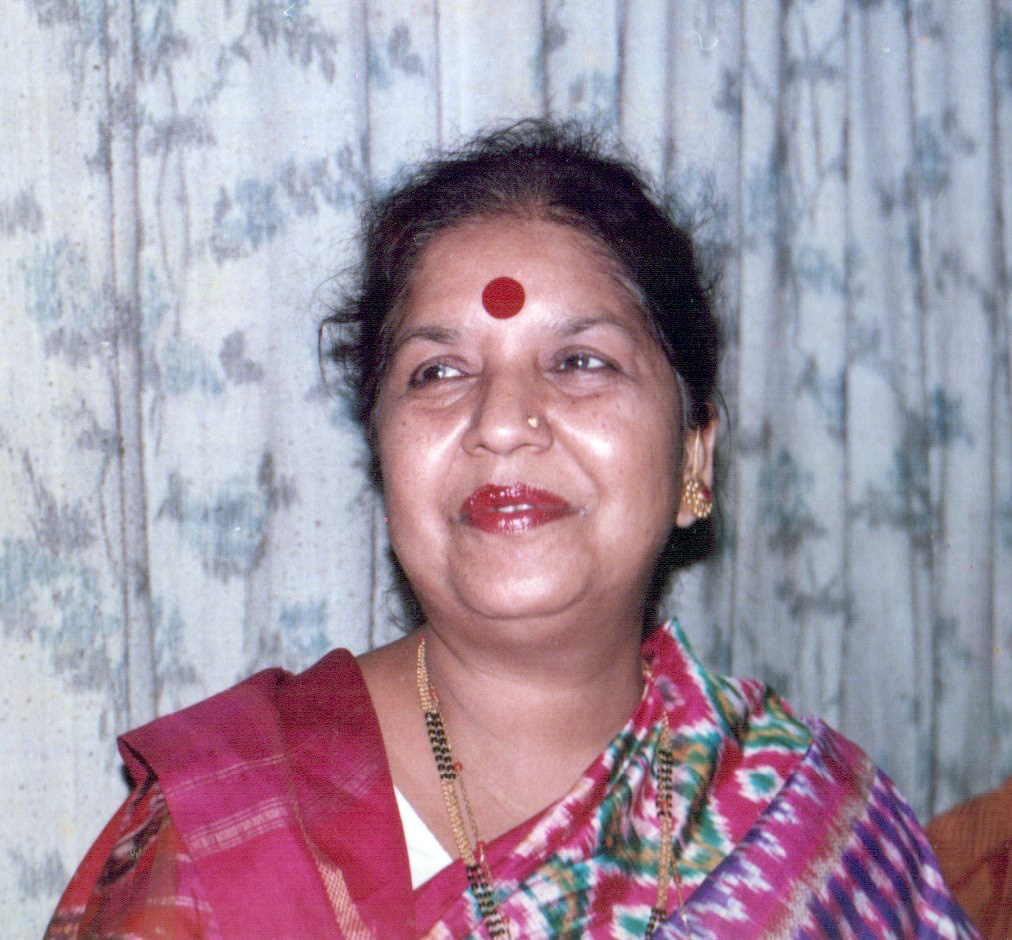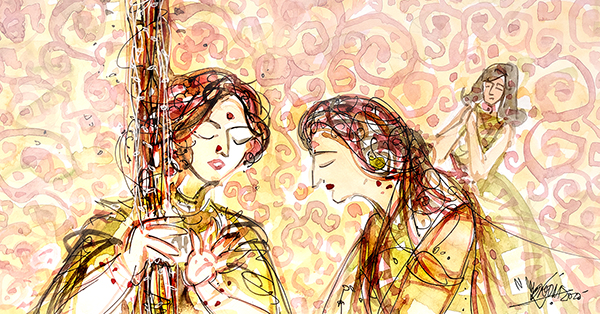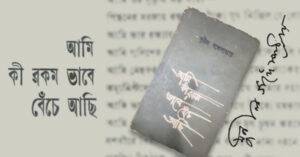The Gurumas of Hindustani Music
In the innumerable bandishes/compositions of Hindustani classical music, it is not difficult to detect a stereotypical representation of women. Many of these compositions are undeniably beautiful, even exquisite, in their musical crafting and potential for elaboration. And yet, the lyrics often depict several stereotypes — the cruel or unsympathetic saas or mother-in-law, the nanad (husband’s sister) who can only find fault with her hapless sister-in-law, the coy, fragile abalaa or she who has no bala or strength. Not surprisingly, the stereotyping continues even beyond the pale of musical practice and performance. Star musicians whose spouses or other family members also serve as their formally or informally appointed managers and representatives are often vilified and defamed in exaggerated measure. Just about anyone who is familiar with the world of Hindustani classical music will have heard admirers and followers of great Pandits and Ustads, describing them as being wonderful, easy-going individuals, and simultaneously ranting against their respective spouses for being unreasonable, demanding or downright impossible to deal with. The gossip circles usually denounce the spouse for being unjustifiably zealous in guarding their idol and keeping him at more than arm’s length, even though the star sometimes pines for the company of his followers. The truth of course, differs from one case to the other, tilting either towards the stereotyping or away from it, depending on variables.
To my mind, it is essential to view the situation with empathy for the ladies in charge. They have chosen their role to be one of taking care of an individual with a special gift, a maverick, even a genius, each a public persona with huge fan-followings. At different times, admirers, students hoping to learn from the stars, organisers, promoters all want to be as close to their idol as possible. Not all admirers hope for such closeness only to be able to exploit it unfairly, but it is equally true that the potential for trouble and betrayal does exist in such situations. Rarely, if ever do critics of the ladies ever take into account the logistical nightmares they must have to deal with. For example, the countless cups of tea and plates of refreshments, lunches, dinners that have to be served smilingly through the day to an unpredictable number of guests who could appear unannounced at their doorstep. This has to be done in addition to their many other chores, duties and perhaps even to the detriment of their own musical routine if they happen to be artistes too. Quite clearly, their job is or can be exasperating, tiring, frustrating and worse, thankless.

Photograph courtesy: Shounak Abhisheki
From my personal experiences, I would like to share my association with three women members from the families of three of my gurus, from each of whom I received immense generosity. For several years I would travel from Delhi to Pune to learn from the eminent vocalist and composer Pandit Jitendra Abhisheki at his home in Pune. Not only was I permitted by his spouse Smt. Vidya Abhisheki to live at their home as part of their extended family of disciples, but the affection and support she provided unstintingly was incredible to say the least. My first taaleem (training) stint at Pune was about a month long in duration, and approximately a week after I reached, Vidya tai asked me about my son, then a little over five years old, whom I had left at home in Delhi while I trained in Pune. As we talked, she urged me to bring him to Pune and when I expressed concern over the possible imposition on her generosity and hospitality as well as that of Pandit ji’s, who had set aside time from his crowded performing and teaching schedule to train me, she brushed aside all such anxieties and concerns and insisted I plan for young master Dhaval to be with us. In due course, Dhaval arrived in Pune to a welcoming Vidya tai who not only kept an eye on him while I received taaleem, but also indulged him with goodies. I was not the only student who was fortunate to receive her generosity. Vidya tai opened her doors to several students who came to Pune to learn, ensuring that they were properly fed and given a place to stay till they were able to make appropriate arrangements for themselves.
The legendary Pandit Kumar Gandharva chose to live in Dewas, Madhya Pradesh, possibly keeping a reclusive distance from the manic buzz of big-city life. And yet, I was permitted into his home as an eager student. This would not have been possible if his spouse Smt Vasundhara Komkali, herself an eminent vocalist, had not generously granted me entry.
The legendary Pandit Kumar Gandharva chose to live in Dewas, Madhya Pradesh, possibly keeping a reclusive distance from the manic buzz of big-city life. And yet, I was permitted into his home as an eager student. This would not have been possible if his spouse Smt Vasundhara Komkali, herself an eminent vocalist, had not generously granted me entry. I am also equally certain that this privilege was accorded to me not for any merits I may have had as a young student, but probably because of my association with Pandit Vinay Chandra Maudgalya (also one of my gurus with whom Pandit Kumar Gandharva and his family shared a close association), but I remain ever grateful for the opportunity and Vasundhara tai’s generosity.
By virtue of being her disciple, I was also fortunate to meet Smt. Naina Devi ji’s family in Delhi. Her daughter, Rena Ripjit Singh, a highly acclaimed interior designer and a regal, elegant lady, was affectionately addressed as Billie di by Naina ji’s students. I met her often at Naina ji’s home during my taaleem sessions and she was always affectionate and generous. But even after Naina ji’s demise in 1993, Billie di remained in touch with a generosity that I can only acknowledge with immense gratitude. Even as she herself struggled to come to terms with the irreparable loss of her mother, she gathered Naina ji’s brood of grieving students to console and comfort us. She encouraged each of us to visit individually or collectively, to study Naina ji’s recordings and learn from them, and even set up a charming, beautifully arranged room in her home, where we could sit together for riyaaz if we wanted to. I don’t know if any of the other students went, listened, studied and used the room for riyaaz. I know that I did not, for a variety of reasons, chief among them being the usual entanglement with one’s own routine and schedule. More importantly, far from closing the doors of her mother’s home on us, Billie di opened her doors and welcomed us warmly. To honour her mother’s memory she established the Naina Devi Foundation steering it in a direction that she was certain her mother would approve of. Providing medical insurance cover to groups of musicians was one of the many projects the Foundation initiated and sustains to this date. Every concert, every project she initiated and organized was conducted with utmost attention to detail and with the exquisite elegance that was so typical of her. Sadly, Billie di’s passing away recently in Delhi is a loss not merely for her family, but for many a shagird of Naina ji including me.
I remain grateful to all these wonderful ladies for their love, support, generosity and for breaking stereotypes.
Illustration by Suvamoy Mitra






